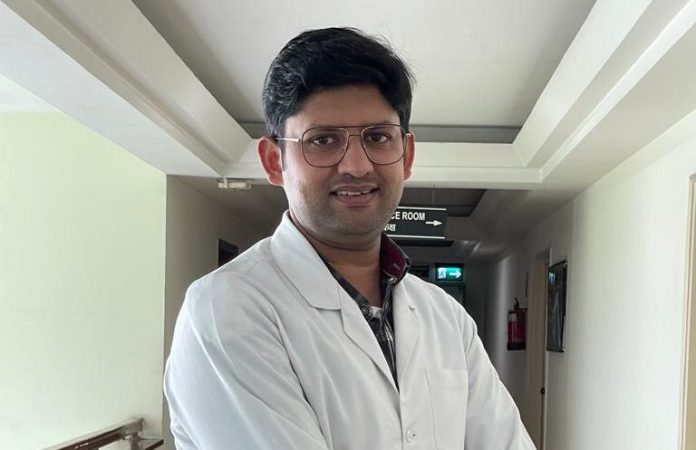On the occasion of World Hepatitis Day with the theme- ‘One Life, One Liver,’ experts have called for increasing awareness, screening, timely treatment, and vaccination to hit hepatitis which is an inflammatory condition of the liver, that poses a significant health challenge. The disease has the potential to lead to severe complications such as liver fibrosis, cirrhosis, and liver cancer. As the global incidence of hepatitis continues to rise, it has become a pressing concern for public health worldwide.
According to the World Health Organization (WHO) estimates, Hepatitis B affects nearly 40 million individuals in India, while Hepatitis C infection impacts between 6 to 12 million people. Timely vaccination plays a crucial role in minimizing risks, and individuals who received vaccinations five years ago can consider repeating the doses for added protection. The theme for World Hepatitis Day, “One Life, One Liver,” highlights the critical value of a healthy liver and emphasizes the need to expand viral hepatitis prevention, testing, and treatment to achieve the 2030 elimination goals.
Sanjay Kumar Yadav, Consultant, Narayana Super Speciality Hospital Gurugram, highlighted the challenges of early hepatitis detection due to silent and vague symptoms. Fatigue, mild fever, muscle pain, loss of appetite, nausea, dark urine, and abdominal discomfort are common signs that are often mistaken for flu. “To ensure timely diagnosis and treatment, blood tests to check liver enzymes, viral antibodies, and genetic components are conducted, followed by ultrasounds and liver biopsies to assess liver damage. Hepatitis can manifest as either acute or chronic, and chronic cases can be effectively treated with a combination of injectable, oral, and antiviral medications,” emphasized Dr Yadav.
Ankur Jain, Senior Consultant – Gastroenterology, Indian Spinal Injuries Centre, drew attention to the increased risk of hepatitis during the monsoon season. “The prevalence of contaminated water sources and improper sanitation during this period contributes to hepatitis transmission. Heavy rains can lead to the mixing of sewage with drinking water supplies, facilitating the spread of hepatitis-causing viruses. Raising awareness about the importance of vaccination and early detection is crucial for better control and management of this infectious disease, ultimately safeguarding public health and well-being.”
According to the experts, the Hepatitis E virus (HEV) is notably considered a significant cause of epidemic hepatitis, particularly in areas with compromised sanitation and hygiene. Proper waste disposal, access to safe drinking water, and hygiene practices play pivotal roles in reducing the transmission of hepatitis-causing viruses.
Naveen Kumar, Senior Consultant, Dharamshila Narayana Super Speciality Hospital, emphasized the five main viruses causing hepatitis: A, B, C, D, and E. Hepatitis transmission occurs through unsafe injection practices, contact with infected body fluids, drug use, and sexual contact. “Special attention is required for Hepatitis C, as it significantly impacts liver function and is prevalent worldwide, affecting over 12 million people in India primarily between the ages of 30 to 60 years. Vaccinations and medications are available to combat hepatitis, with acute cases requiring antiviral medications for virus elimination. A combination of injectable, oral, and antiviral drugs is commonly employed for successful treatment,” explained Dr Naveen Kumar.








